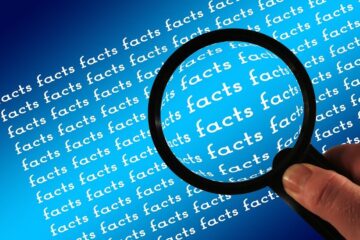![]()
Introduction
Examination of witnesses is an important principle in which witness takes a stand of his or her words. The witnesses help to clarify what happened by telling the judge everything they know about an event. A witness is someone who has relevant information about a crime. Examination of witnesses forms an important part of a criminal and a civil trial. Sections 135 to 166 of the Indian Evidence Act 1872, lay down the provisions related to the examination of witnesses.

Who can testify as a Witness
A witness is able to testify before the Court only if the Court considers him competent for it. If in the opinion of the Court, a person is unable to understand questions put to him; or is unable to give rational answers to those questions owning to tender years or due to extreme old age or disease of mind/body or any other such cause, the Court may consider the witness incompetent to testify. The information provided by witnesses becomes part of the evidence therefore their testimony is vital in a trial.
Provisions under the Indian Evidence Act, 1872
Chapter X, Sections 135 to 166 of the Indian Evidence Act provides for examination of witnesses.
I. Order of production and examination of witnesses:
Section 135 of the Indian Evidence Act gives the power to the Court to command or order in which the witnesses may be produced. The Court is able to use this power only if the law and practice for such production is absent.
II. Judge’s power to decide the admissibility of evidence:
Judges have the power under Section 136 of the Indian Evidence Act to decide the admissibility of evidence; in the examination of witnesses. Also check the statement of the witnesses which is given by the witnesses during the examination of witnesses. That is relevant or irrelevant.
III. Examination in chief, Cross-examination and Re-examination:
Section 137 lays down the types of examination carried on a witness.
Examination in chief is the first examination of witnesses after the oath; wherein a witness is examined with the purpose of eliciting statements on all material facts; within his knowledge which tend to prove the party’s case. This type of examination is also known as Direct Examination.
After the chief examination, cross-examination takes place. In cross-examination there is a scope for the advocate to analyze all the statements of the witnesses; made in their chief examination and counter-question the witnesses on that. This leads to making facts more clear as it tests the truth of the statements made by the witnesses.
Lastly, re-examination is conducted. Although it is not an essential part of the judicial proceeding, it takes place if any incompatibility between statements arises after the chief and the cross-examination.
IV. Order of Examination and direction of Re-examination:
Section 138 specifies the order of examination wherein. First of all, witnesses shall face chief examination. Then cross-examination by the opposite party if the opposite party so desires. Lastly shall face re-examination by the first party if the first party desires to call witnesses for examination. If any new issue gets introduced during re-examination. Then the opposite party shall have the option to further cross-examine upon the issue with the permission of the Court. These examinations shall be related to relevant facts except cross-examination; where it is not limited to the statements made in the chief examination. But questions related to facts of evidence can also be put to the witnesses.
V. Cross-examination of person called to produce documents:
If a person has the document in his possession. He is summoned only to produce that document. He may appear in Court and produce the document. Otherwise he may inform the Court by an application stating that; he has no possession of the document if the document summoned for is not in his possession. Section 139 of the Indian Evidence Act clearly provides that; he does not become a witness by simply producing the document. It cannot be cross-examined unless he is called as a witness. If the person has not produced the document. Then the Court cannot record the statement of such person; on oath to satisfy itself regarding the whereabouts of the document.
VI. Witnesses to character may be cross-examined and re-examined:
This section 140 throws light on character relevancy in criminal trials. Relevance of character does not matter in the civil suit but character plays a vital part in criminal cases. The character evidence assists the Court to establish the value of evidence brought against the accused in criminal cases.
VII. Leading questions:
A leading question is that which signals to the witnesses the real or obligated fact which the examiner expects and desires to have confirm by the answers leading to questions. The circumstances under which the questions arise determine whether a question is leading or not. Section 141 defines the “leading question”. Section 142 lays down that leading questions must not be put in examination; in chief and re-examination without the permission of the Court. It also lays down that the court should permit leading questions in examination in chief or re-examination only as to the matters which are unchallenge or which are already been sufficiently prove in the opinion of the Court. Leading questions may be put in cross-examination; under Section 143.
VIII. Evidence as to matters in writing:
A witness may be ask under examination of any contract, grant or other temperaments of property as to which he is giving evidence was not contain in a document, but if he says that it was in existence or if he makes an affirmative statement of its existence. Then, in the opinion of the Court it ought to be produce and the opposite party may object of such evidence being until such document is produce or facts have been prove which entitles the party; who called the witness to give secondary evidence of it under section 144.
IX. Cross-examination as to previous statements in writing:
The procedure by which a witness may in cross-examination be contradicted by his previous statement made in writing is provided under Section 145 of the Indian Evidence Act. The object of this provision is either to test the memory of a witness or to contradict him by previous statements in writing.
X. Questions lawful in cross-examination:
Section 146 specifies that when a witness is cross-examin he may be asked any questions which test his truth to find out who he is and what is his position in life or to shake his credit by injuring his character.
XI. When witness to be compelled to answer considering logical grounds:
If any witness is ask a question in cross-examination about his character and that character is directly to the point in the proceeding, the witness is not secure from answering under Section 147 of the Act. The Court is to determine whether the question is to be answer or not as per the rules given under Sections 148,149 and 150. No such question should be asked unless the person asking it has logical grounds to believe that the imputation made against the witness is well-founded. Also no disgraceful questions should be asked unless there are logical grounds to believe them to be true. Section 150 is the punishment that may secure against reckless cross-examination if the Court thinks that the questions were ask without valid grounds.
XII. Indecent questions and questions intended to insult:
Section 151 forbids the putting of any question which is indecent or scandalous, unless it relates to facts in issue or is necessarily connect with them. Also any question which appears to insult or irritate, or which, though proper, appears to the Court needlessly offensive in form, shall be forbidden by the Court under section 152.
XIII. Exclusion of evidence to contradict answers to questions testing veracity:
When a witness deposes to facts that are relevant, evidence may be given in contradiction of what he has stated. But when what he deposes to affects only his credit, no evidence to contradict him can be led for the sole purpose of shaking his credit by injuring his character. However, a witness answering falsely can be proceed against for giving false evidence. The object of this section 153 is to prevent trails being spun out to an unreasonable length. If every answer by a witness upon the additional facts could be the subject of fresh inquiry, a trial might never end.
XIV. Question by party to his own witness:
This provision is covered by section 154 where a party calling a witness and examining him discovers that; he is either hostile or unwilling to answer questions put to him. He can obtain the permission of the Court to put questions to him; which may be put to him by way of cross-examination.
XV. Impeaching credit of witness:
Section 155 enables the parties to give independent testimony as to the character of a witness in order to indicate that he is unworthy of belief by the Court.
XVI. Questions tending to corroborate evidence of relevant fact are admissible:
It is well-settled law that even where the evidence of the complainant is quite credible, no conviction can be base on such evidence unless it is corroborate by independent material. Section 156 permits the Court to allow a witness, who has testified to a relevant fact, to corroborate his testimony by deposing to any circumstances which he observed at or near the time or place at which such relevant fact occurred.
XVII. Former statements of witness may be proved to corroborate later testimony as to the same fact:
A witness’s former statement relating to the same fact made at or about the time; when the fact took place may be prove in order to corroborate his present testimony. There are only two things that are essential for this section 157 to apply. The first is that a witness should have given testimony with respect to some fact and the second is that he should have made a statement earlier with respect to the same fact at or about the time when the fact took place or before any authority legally competent to investigate the fact.
XVIII. What matters may be proved in connection with proved statement relevant under section 32 or 33:
Sections 32 and 33 of the Indian Evidence Act permit the putting in of statements, oral or written, or statements made in a judicial proceeding, by a person who cannot be examin as a witness. By section 158, the intention is to submit such statements to the tests of contradiction and corroboration. In the same way as if those statements were by the witness in the box. No sanctity attaches to such statements simply. Because the person is dead or cannot be examin as a witness. His credibility may be impeach or confirm in the same manner as in the case of a living witness.
XIX. Refreshing memory:
A witness allowed to review his memory, about anything upon which he is question, may review by means of writing. It is not essential that the document use for refreshing memory should be relevant. It should be in mind that for refreshing memory the document or writing may not be admissible but facts test to be prove must be admissible under Section 159.
XX. Testimony to facts stated in document mentioned in section 159:
It has been seen that Section 159 of Evidence Act deals with cases where the writing revives mentioned in the mind of the witness a recollection of the facts about the transaction, i.e. as soon as he looks at the writing he remembers the facts. But if even after studying of the document, the witness is unable to refresh his memory or is not able to recollect the facts, then under this section 160 he may testify to the facts mentioned in it, if he recognizes the writing or signature and feels sure that the contents of the documents were correctly recorded.
XXI. Right of adverse party as to writing used to refresh memory:
Any writing mention under the provision of Section 159 and Section 160 of the Act must be produce and show to the opposite party if he requires it, such party may if pleases, cross-examine the witness thereupon. This provision is cover under section 161.
XXII. Production of documents:
A witness summoned to produce a document shall, if it is in his power or possession, bring it to Court. However any objection which may arise to its production or to its permissibility, the validity of any such objection shall be decided by the Court under section 162. The only limitation on the power of the Court is that in cases of documents where privilege is claim by stating the documents are unpublish records relating to the affairs of the State, the Court may not look at those documents but must determine the validity of the claim on materials other than the document itself.
XXIII. Giving, as evidence, of document called for and produced on notice:
Where a party to a suit gives notice to the other party to produce a document, and when produce, he inspects the same he is bound to give it as evidence if the other party requires him to do so. The reason for this rule under section 163 is that it would give an unfair advantage to a party to enable him to pry into the affairs of his adversary, without at the same time subjecting him to the risk of making whatever he inspects as evidence for both parties.
XXIV. Using, as evidence of document production of which was refused on notice:
Section 164 signifies that when a party refuses to produce a document which he has notice to produce, after that he cannot use the document as evidence without the permission of the other party or the order of the Court.
XXV. Judge’s power to put questions or order production:
A judge has a right under Section 165 to put questions to witnesses expressly recognized. It is his duty to search all avenues open to him in order to find out the truth. If the judge finds that the examination of a witness is not being treat in such a way as to unfold the truth, it is not only his right but his duty to intervene with his own questions. The judgment must be base upon facts declare by this Act to be relevant and duly prove under this section and shall not authorize any judge to compel any witness to answer any question or to produce any document which such witness would be eligible to refuse to answer or produce.
XXVI. Power of jury or assessors to put questions:
Section 166 gives power to jury or assessors to put any questions to witness, through or by leave of the Judge, which the Judge himself might put and which the Judge considers proper.
Conclusion
Examination of witnesses is very important for any case whether it is of civil or criminal nature. Sections 135 to 166 of the Indian Evidence Act covers this important part of a trial of examination of witnesses which showers light on the aspects of examination like who can first examine the witnesses during the examination of witnesses and what are the relevant facts that are accepted during the examination of witnesses and what are the questions asked by an advocate during the cross-examination of witnesses and what questions are not asked during the cross-examination and also specifies the power of judges during the examination of witnesses and at last highlights the provision related to the power of the jury and assessors to ask the question during the examination of witnesses.



0 Comments